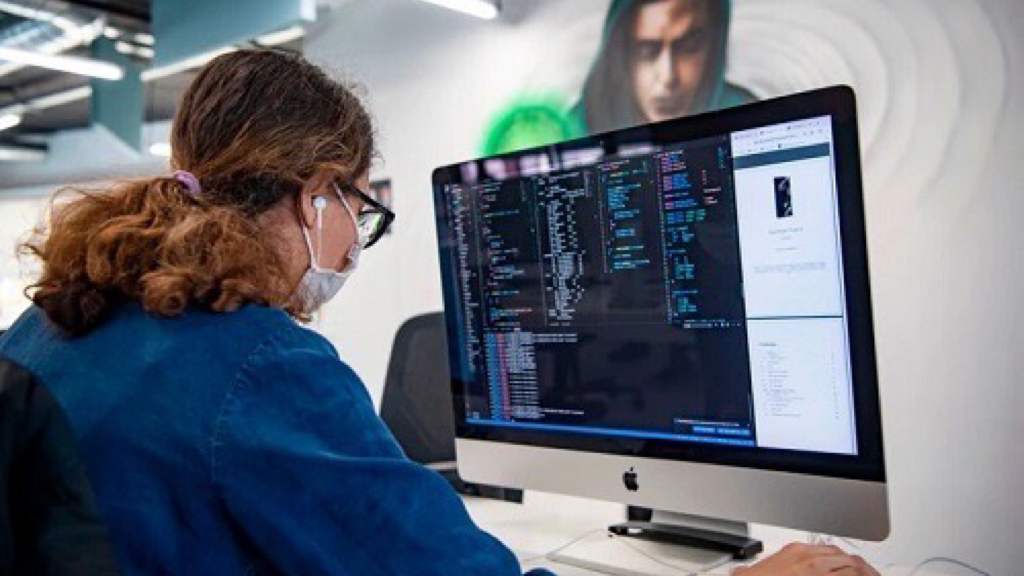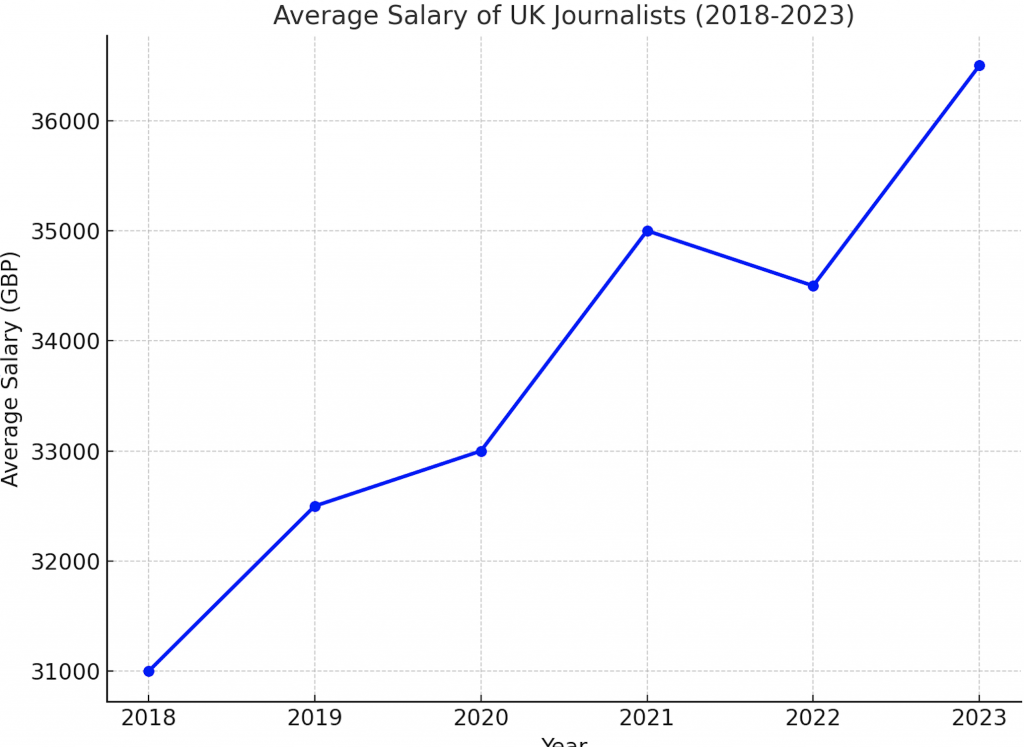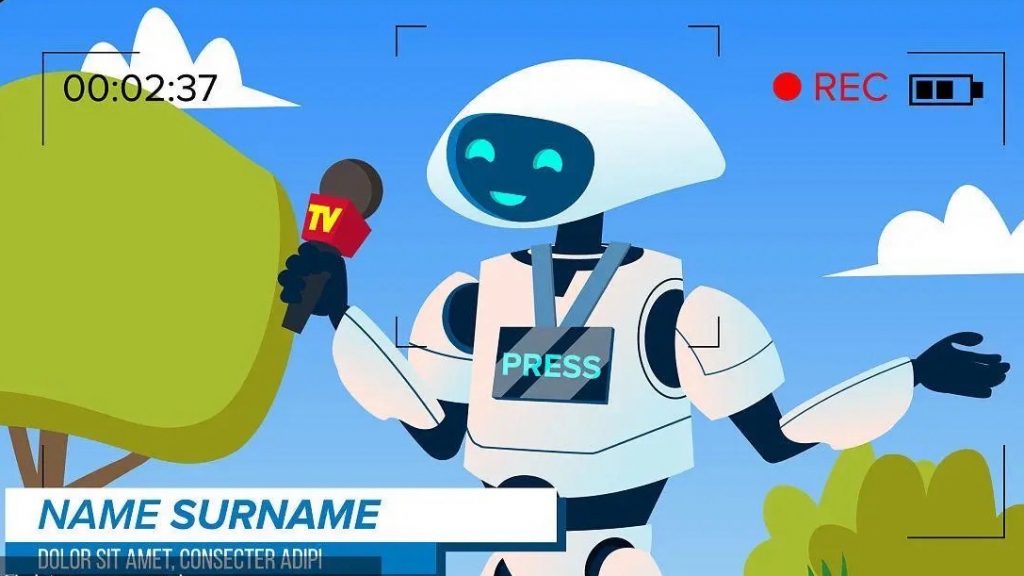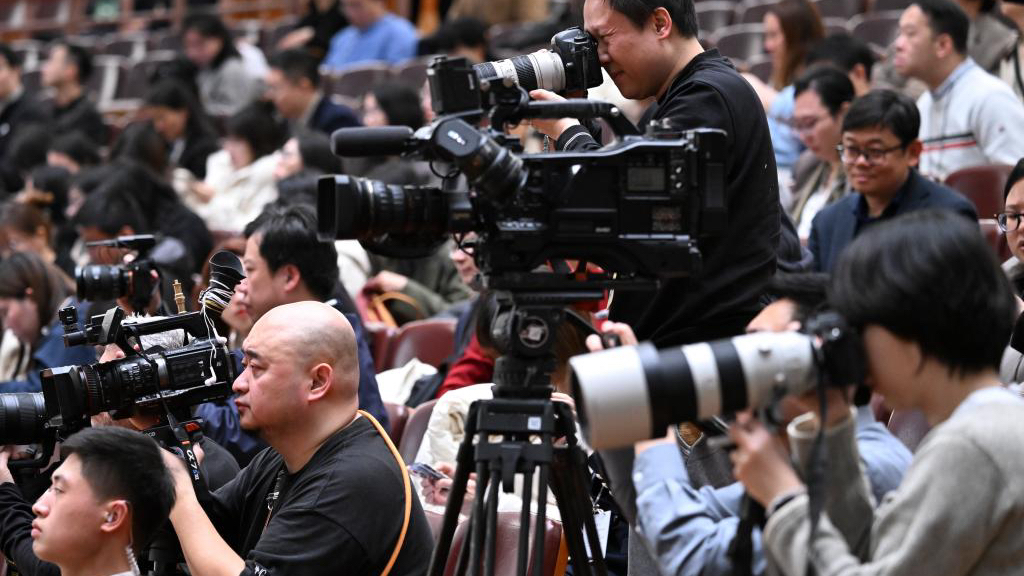Artificial intelligence technology has brought about a reshaping of the news landscape, in which traditional journalists feel how, they are full of hope or fear?

Daniel Bevan is a 29-year-old journalist of ITV News Wales, he is often faced with unexpected reporting tasks. In an unexpected on-the-spot interview to a public protest, he found that the live reporting from the first perspective of social media was much faster than the reporters going to the scene. He also began to panic about the impact of new technology on the media industry.
While most news organizations are actively transforming and changing in response to the onslaught of new technology, Daniel has found that regional TV stations are not transforming as quickly or as effectively as the larger newscasters, which he believes could be a potential challenge for regional news broadcasters, based on his experience working at ITV.
“It’s a dilemma that the first to benefit from new technologies are often established institutions, such as large news organizations, which have the money and ability to absorb the new technology. But for local journalism, and I mean regional journalism in particular, it’s very difficult for them to solve this problem,” says Daniel Bevan.
Local journalism is at a distinct disadvantage in the way that it adopts new technology and can never compete with big publicly funded organizations like the BBC, according to journalist Daniel Bevan.
Technological changes have changed the way readers read news. For example, readers prefer to use social media to search keywords to find and get the news they want. Readers no longer passively acquire news, but actively search for news.

In order to cater to the audience, newsrooms are more inclined to produce content that is of interest to the majority of the public, such as national events and major sports events, and gradually ignore local news events, such as small local policy changes and economic reports.
British journalism has faced significant job losses in recent years, reflecting broader challenges facing the media industry. Reach PLC, which owns several regional and national newspapers, announced plans to cut around 450 jobs in 2023, including around 320 in the editorial team.

The statics means that the job of the local media industry is reducing, Journalists are facing a turbulent employment environment.
The fundamental reason for this phenomenon is that the way the public gets news has changed, and the revenue of news broadcasting organizations has also decreased, resulting in their inability to better carry out digital transformation.
“People don’t want to spend a lot of time reading newspapers,” said Bevan. “Personalized news recommendations on the web allow them to focus on their favorite areas of information. And that makes it harder and harder for local news to reach a larger and larger audience, and it’s a vicious cycle where regional news broadcasters, because they don’t have the attention, they don’t have the advertising revenue, they can’t absorb the new technology, and they have to go out of business or lay people off.”
“I can’t say it’s a very optimistic thing, either for journalists or for the public. I dread to think that in ten or twenty years, the newspaper industry will actually disappear. The worry is not that my career is going to change, but that the so-called mass media industry is going to become journalism for the ‘majority,’ and what about other small people? Who can speak for them?” ‘he said.
However, it must also be admitted that new technologies such as artificial intelligence technology have also had a positive impact on journalism, which not only helps journalists to reduce broadcasting errors, but also shorts the time of news production.
Journalists can use artificial intelligence to make corrections or grammatical corrections to text, and tools such as FactCheck.org can detect whether a story actually happened. And artificial intelligence technology can summarize data and help users generate data analysis charts or prediction charts.

Fidelis Zengeza Zvomuya who has extensive experience in news and works for an independent news editorial website says, “Journalists have varying perspectives on AI technology. Some embrace it as a powerful tool that presents exciting opportunities, such as automated fact-checking and data analysis. Others, however, perceive it as a potential threat, fearing that it may replace human creativity and intuition in storytelling. The dynamic relationship between journalists and AI continues to evolve, with a mix of optimism and caution.”
At present, many large news broadcast web pages have also begun to use artificial intelligence technology, such as The Guardian, through artificial intelligence technology to promote the news that readers are more likely to like, so as to increase the browsing time and number of the public.
“As a media practitioner, I must admit that AI technologies have already made significant inroads in the media industry. Natural language processing and machine learning algorithms aid in content curation, personalized recommendations, and sentiment analysis. Automated transcription services, chatbots, and voice assistants are also prevalent. Moreover, AI-powered tools for image and video analysis enhance the visual storytelling capabilities of journalists,” Fidelis says.
The impact of the application of new technologies to the news industry can not only be seen in the short term, but also needs to be considered in the long term to explore how new technologies will continue to have a more positive impact on the news field in the future.
“AI technology will certainly have an impact on traditional media jobs, but I think the actual impact will take time to assess,” Silu Zhang, a journalist works for BBC in the UK, says.
“First of all, some TV stations have started to use artificial intelligence to synthesize News content, such as GB News Radio, but the actual working effect needs to be mature and long-term operation to see. And I think the entry of AI into the media industry also brings new job opportunities, such as content supervision, content reprocessing and technology,” he says.

The current application of artificial intelligence in the media field is only a preliminary stage. The mature application of a new technology may bring about an impact on national policies or regulations. Therefore, how to properly use artificial intelligence technology in the future is a real topic that needs to be investigated.
As Silu Zhang said, “When the news industry can truly mature the application of AI technology, this will also involve the field of information security, because the strict requirements of the General Data Protection Regulation mean that the handling of private information is a complex and sensitive issue, and how to use AI and meet information security requirements in the future is a bigger challenge.”
Up to now, it must be admitted that new technologies such as artificial intelligence have indeed brought impact to the traditional news industry, and this impact is especially obvious to the paper media industry.
The market for newspapers in the UK is shrinking rapidly, with local print daily newspaper circulation falling by an average of 21% in the six months to 2023 compared with the same period last year, according to the latest figures from the ABC.
One of the most striking examples is the Manchester Evening News, which saw its average circulation fall by 59% from the previous year. Reach plc, a major UK publisher, reported significant circulation declines in eight of its 10 daily newspapers, with an average decline of 25%.
The bad situation of the newspaper industry has also led to more journalists being laid off or changing careers, because the traditional media no longer has enough revenue to maintain the operation of the organization, and the high-intensity work of journalists is not matched by the salary, which also makes them wavering.

This situation is not only evident in the UK, but traditional journalism in China is also going through a difficult time.
“I’ve been working at the daily newspaper, but there’s no advertising revenue in our department anymore because no one reads the paper. I don’t really want to be a journalist anymore, because we have to do interviews and reports to maintain the newspaper’s daily news release, even if no one pays attention to me, but my salary is little and the job is not as good as it was a few years ago, “said Xia Qing, a reporter who works for the China People Morning News.
Artificial intelligence has brought about not only changes in readers’ reading and consumption habits, but also changes the news industry, especially the scope of the newspaper industry, but whether the rumor of “the newspaper has died” will really become a reality, we still do not know. In addition, artificial intelligence has gradually changed the writing habits of journalists.
New technology has brought impact to the traditional news industry, but also bring vitality. This is because journalists have to improve their creative ability in order to keep readers focused on their interviews and reports for a long time in the information developed society.
New technology not only has an impact on the traditional news industry, in fact, the whole news production mode and the way journalists report are changed because of new technology.
In the past, journalists could do a great interview with a video camera, pen, paper, and a sound recorder. Now, journalists can gather the content they need from a computer at home, and they can even splice the content instead of writing it themselves.
News became easier to broadcast, and the audience for news broadcasting expanded from professional journalists to any citizen who could type and create content.
Suzanne Latre, who works for the editorial board, expressed great concern and anxiety about the gradual adoption of AI technology says, “As the editor of a magazine and a journalist myself, AI has made the production of quality and original content more difficult and has lowered the barrier of entry in the field of journalism.”
“In the past, you had to go to journalism school and have a knack for writing, research and some people-skills because there was no other way you could keep your job if you didn’t know exactly what you were doing and how to bring a story to life.”
“In the age of AI, you now just need an internet connection and know how to navigate plagiarism and that’s if you’re smart enough to check. With AI, copywriters with no formal qualifications brand themselves as ‘journalists’. “
Journalists hold a variety of attitudes towards the impact of new technologies on the media industry, whether positive or negative, which proves that the emergence of new technologies has indeed brought certain changes to the industry.
“AI has changed my work because I can no longer trust that professionals are honest about their qualifications and their use of AI. I need to constantly monitor for plagiarism, AI use and the overall quality of the articles,” she says.
“While AI can automate everyday tasks and enhance research, some worry that AI-generated content could displace jobs and affect quality and authenticity, AI has changed the workflow of journalists, and many utilize AI tools for research, data analysis, and content optimization,” says Manzoor Ahamed, who works in the new media department of a widely followed newspaper industry.
“But I think I know of very few journalists who have left journalism for that reason, and it’s not a factor in whether or not we continue to work,” he says.
The control of new technology is still in the hands of people, so some journalists think that new technology does not make journalists feel threatened, on the contrary, they will master new skills to better use technology.
“Industry will change something but remember one thing that AI it’s just a machine which is also processing by technology which is also conducted by human so I don’t think that journalists will leave their journalism for that,” Sahin Saba says, who works as a journalist in UK takes a similar stance on the impact of AI on journalism.

The working environment for journalists is beginning to change because of new technological advances, and there are also concerns about whether artificial intelligence will replace journalists’ jobs, and whether journalists will leave the industry because of new technological advances.
Michael Thervil who is an Editor-in chief and Photojournalist says, “I have to admit that there are journalists who have left the industry, however, based on what I’ve seen, the journalists who have left are not because of AI, It’s because journalism is dead to them. But that sentiment is based on changing times and the way the media treats journalists.”
“But I’ve never wavered in my desire to leave journalism because it’s my passion, and AI hasn’t affected the way I work, except when it comes to search engine optimization . “
” I want to say that AI is very useful in word processing and editing, and even in data searching for journalists is very helpful. But there are still calls to slow down the pace of AI development so that the international community can not only catch up, but develop laws that will help regulate AI, “he said.
The development prospect of artificial intelligence technology is still not bright, because behind the application of artificial intelligence technology in journalism, more is the subtle output of the values of the people who hold the technology, which is what the public should be wary of.
At present, artificial intelligence technology has been gradually applied to the field of news, and news practitioners have expressed certain expectations or concerns about it. However, in the future, the application of artificial intelligence technology will deserve more attention.
This is because the technology is ultimately in the hands of the operator, and whether the operator can really apply the technology to the benefit of social citizens is still to be studied.
“I think the use of AI technology in journalism will depend on the people who create, develop and leverage it. That being said, the use of AI in news should not reach the point where we rely on it. I say this as a photojournalist, because just as people default to error and succumb to their biases, so will AI. The other thing you might want to keep in mind is that anything can be weaponized, and that includes AI,” Michael Thervil says.
Manzoor Ahamed makes a similar point and says,”If artificial intelligence technology is not restricted, it is very likely that in the future, like the United States, a technology that benefits people will be turned into a militarized weapon directed at the public, which is the most important problem as a journalist.”
“I’m not worried about whether journalists and AI can get along, because there’s no conflict. I think in the future there should be more concern about how the technology is not weaponized, which is the real trap, ” he says.
